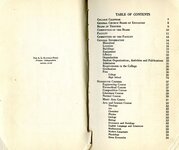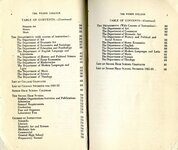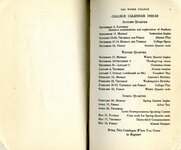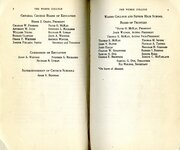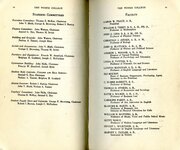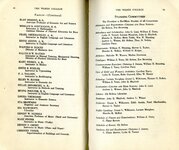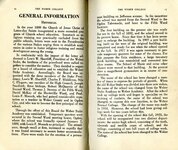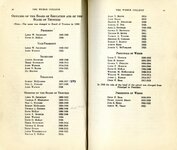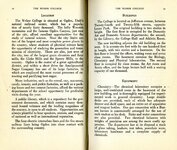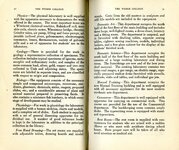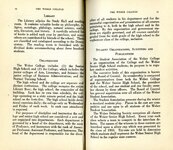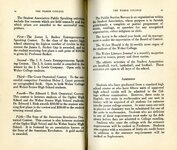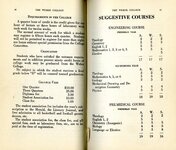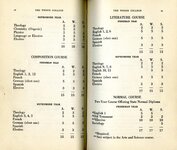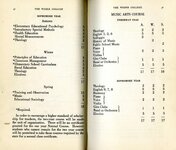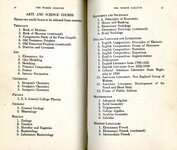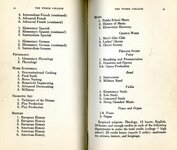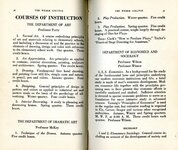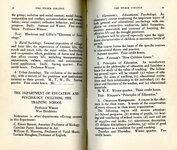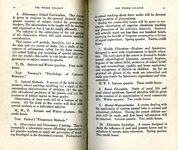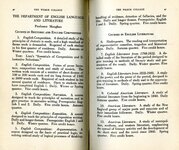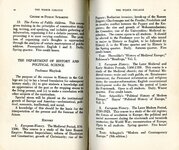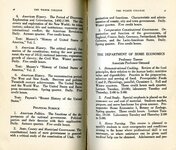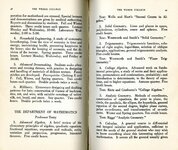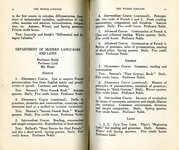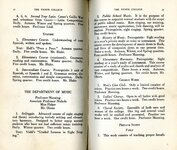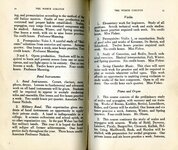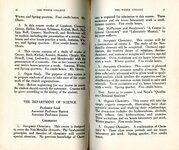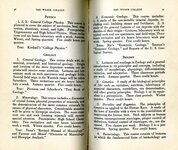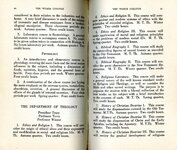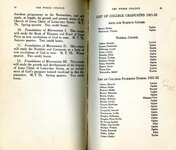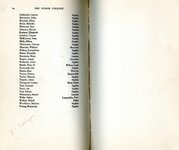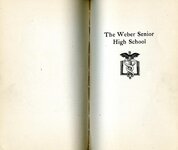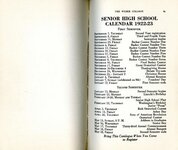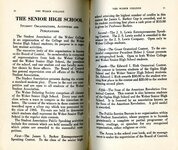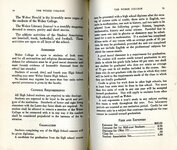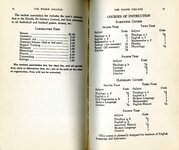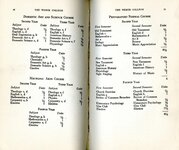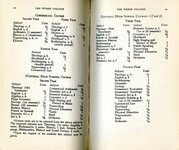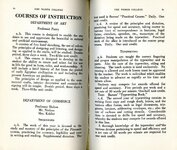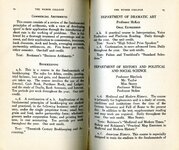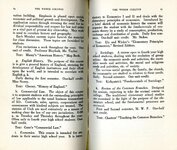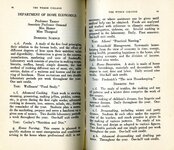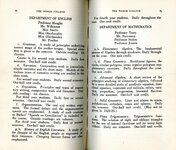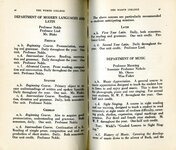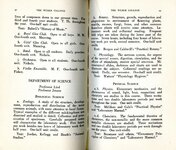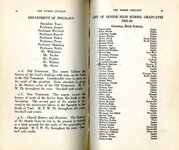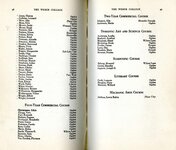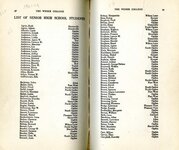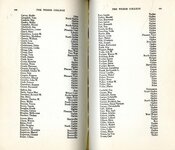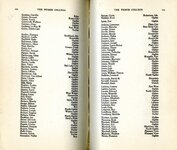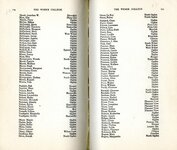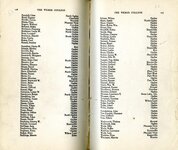| Title |
1922-1923 Catalogue of the Weber College |
| Creator |
Weber College |
| Description |
This collection consists of copies of annual catalogs issued by Weber Normal College from 1918 to 1922. The college was affiliated with the Church of Jesus Christ of Latter-day Saints. |
| Subject |
State boards of education; Universities and colleges--Curricula--Catalogs; Faculty; Ogden (Utah); Weber College |
| Digital Publisher |
Stewart Library, Weber State University, Ogden, Utah, USA |
| Date Original |
1922; 1923 |
| Date |
1922; 1923 |
| Date Digital |
2010 |
| Item Description |
5.6 X 8-11 X 8 inch |
| Conservation Notes |
paperback book |
| Type |
Text |
| Conversion Specifications |
Archived TIFF images were scanned with an Epson Expression 10000XL scanner. Digital images were reformatted in Photoshop. JPG and PDF files were then created for general use. |
| Master Quality |
300 PPI |
| Language |
eng |
| Rights |
Public Domain. Courtesy of University Archives, Stewart Library, Weber State University |
| Source |
LD 5893.W5C3 Weber State University Archives |
| Format |
application/pdf |
| ARK |
ark:/87278/s6zptxdp |
| Setname |
wsu_cat |
| ID |
19889 |
| Reference URL |
https://digital.weber.edu/ark:/87278/s6zptxdp |
| Title |
042_page 84 and 85 |
| Creator |
Weber College |
| Description |
This collection consists of copies of annual catalogs issued by Weber Normal College from 1918 to 1922. The college was affiliated with the Church of Jesus Christ of Latter-day Saints. |
| Subject |
State boards of education; Universities and colleges--Curricula--Catalogs; Faculty; Ogden (Utah); Weber College |
| Digital Publisher |
Stewart Library, Weber State University, Ogden, Utah, USA |
| Date Original |
1922; 1923 |
| Date |
1922; 1923 |
| Date Digital |
2010 |
| Item Description |
5.6 X 8-11 X 8 inch |
| Conservation Notes |
paperback book |
| Type |
Text |
| Conversion Specifications |
Archived TIFF images were scanned with an Epson Expression 10000XL scanner. Digital images were reformatted in Photoshop. JPG and PDF files were then created for general use. |
| Master Quality |
300 PPI |
| Language |
eng |
| Rights |
Public Domain. Courtesy of University Archives, Stewart Library, Weber State University |
| Source |
LD 5893.W5C3 Weber State University Archives |
| Format |
application/pdf |
| Setname |
wsu_cat |
| ID |
29167 |
| Reference URL |
https://digital.weber.edu/ark:/87278/s6zptxdp/29167 |


